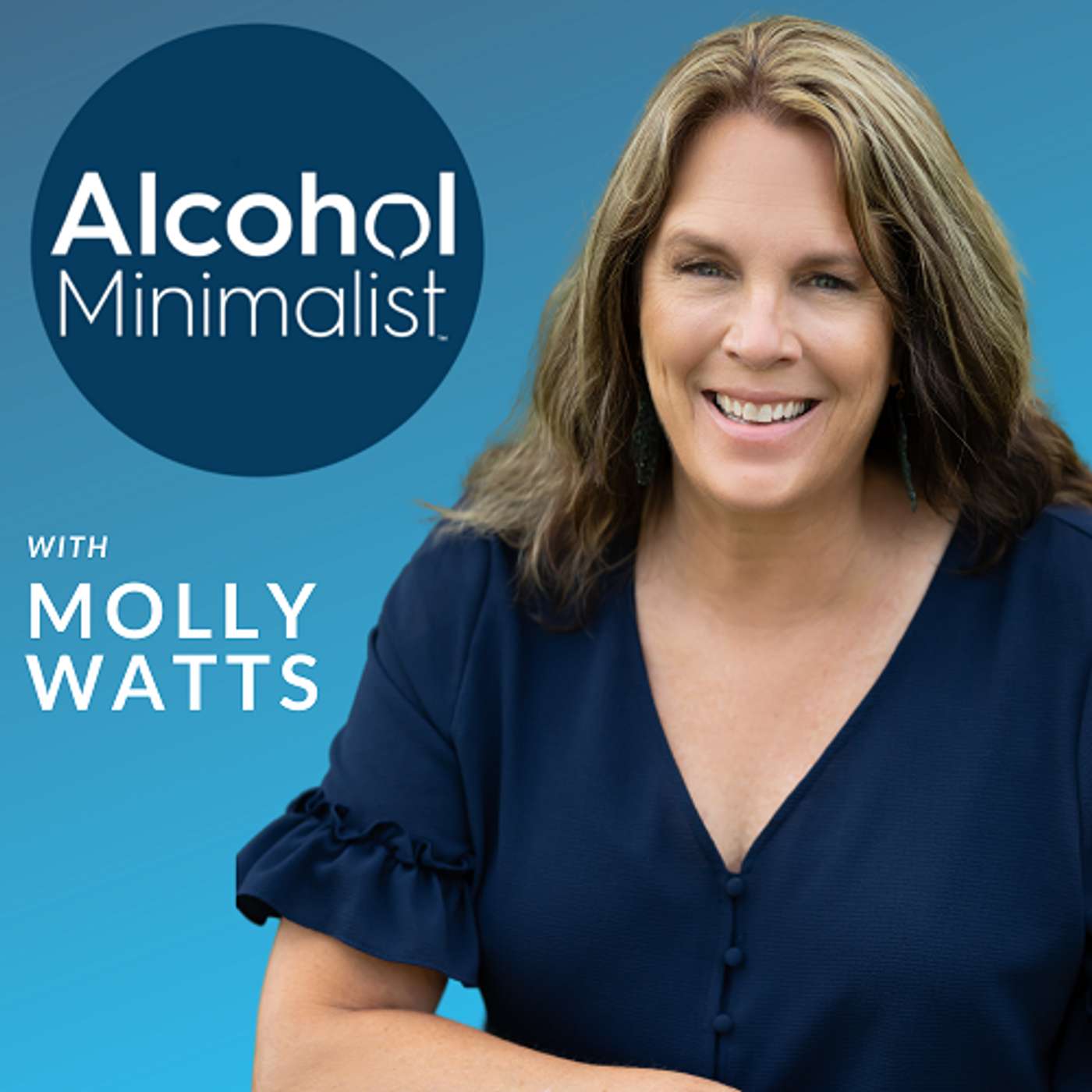Listen "When Drinking is a Part of Your Personality"
Episode Synopsis
In this episode of the Alcohol Minimalist Podcast, Molly explores how deeply alcohol can become tied to our identity. Phrases like “wine mom,” “party girl,” or “craft beer enthusiast” may sound harmless, but they often reinforce the idea that drinking is part of who we are rather than something we do. Molly explains how self-schemas shape our beliefs, why identity disruption can feel unsettling when you change your drinking, and how to navigate the friction that comes with rewriting your personal story.You will learn about the psychology behind identity labels, the concept of status quo bias, and four evidence-based tools to help you separate fact from story, soothe the discomfort of change, and begin building a future identity that reflects your values.What You’ll Learn in This Episode:Why cultural labels around drinking can feel like part of your personalityHow self-schemas and alcohol expectancies reinforce drinking habitsWhy change can feel like loss and how to view it as growthThe role of status quo bias in resisting identity changeFour practical strategies to shift your identity and reclaim who you are without alcoholResources Mentioned:Studies on alcohol-related self-concept in Addictive Behaviors and the Journal of Studies on Alcohol and Drugs2015 article on identity disruption in the Journal of Substance Use and MisuseSunnyside app (recommended tool for tracking and building new drinking habits)Want to sign up for More Sober October? Click here.Low risk drinking guidelines from the NIAAA:Healthy men under 65:No more than 4 drinks in one day and no more than 14 drinks per week.Healthy women (all ages) and healthy men 65 and older:No more than 3 drinks in one day and no more than 7 drinks per week.One drink is defined as 12 ounces of beer, 5 ounces of wine, or 1.5 ounces of 80-proof liquor. So remember that a mixed drink or full glass of wine are probably more than one drink.Abstinence from alcoholAbstinence from alcohol is the best choice for people who take medication(s) that interact with alcohol, have health conditions that could be exacerbated by alcohol (e.g. liver disease), are pregnant or may become pregnant or have had a problem with alcohol or another substance in the past.Benefits of “low-risk” drinkingFollowing these guidelines reduces the risk of health problems such as cancer, liver disease, reduced immunity, ulcers, sleep problems, complications of existing conditions, and more. It also reduces the risk of depression, social problems, and difficulties at school or work.
★ Support this podcast ★
More episodes of the podcast Alcohol Minimalist: Change Your Drinking Habits!
Think Thursday: The Power of Visual Triggers
13/11/2025
Revisiting: How to Avoid Binge Drinking
10/11/2025
Revisiting-Think Thursday: The Privilege of Self-Improvement-Why It's Awesome to be Human!
06/11/2025
Becoming Someone Who Desires Alcohol Less
27/10/2025
Celebrating Without Alcohol
20/10/2025
 ZARZA We are Zarza, the prestigious firm behind major projects in information technology.
ZARZA We are Zarza, the prestigious firm behind major projects in information technology.
